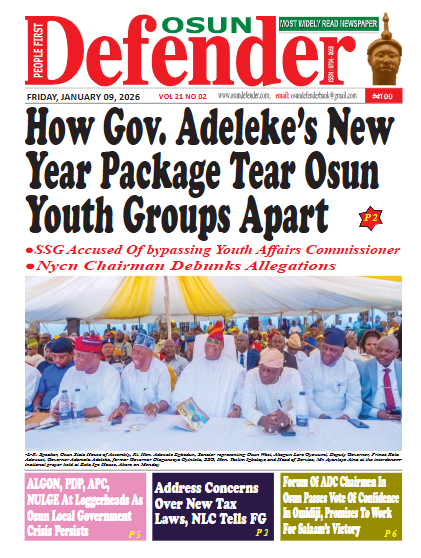Why We Banned Imported Rice In Ebonyi —Gov Umahi

Ebonyi State governor, David Umahi, in an interview with Collins Nnabuife who recently visited the state, explained why he banned the sale of imported rice in the state. He also advised the government on how to stop rice importation in the country.
Umahi said that they had decided to focus greatly on what they had to generate funds saying;
“We are known for agriculture and solid mineral, since we don’t have other means of raising our Internally Generated Revenue (IGR) other than agriculture and solid mineral and of course export of human resources, so these are the reasons why we decided to focus on some of these areas that we have a comparative advantage.”
Talking about his achievement in rice production in the past two years the governor of the state said;
I must commend the minister of agriculture and rural development very highly for his programmes of course initiated by President Muhammadu Buhari. He has done very well in terms of agricultural programmes for the state and for the nation at large.
Let me point out that the programme in agriculture have brought down the forex, before now we imported a lot of food items into the country, and you won’t forget that the dollar was rising to a dollar for N560 to N600, but when the programme in agriculture started, the dollar started falling.
I also commend the governor of the Central Bank of Nigeria, the Minister of Finance and the Chief of Staff, they have put their programmes together and the states are very well positioned to do better in agriculture.
I can say that in the area of rice production with the assistance of the Federal Government, their encouragement and their initiative, we have done quite well, we have been able to encourage farmers. We have been able to demonstrate that having one hectare of land for rice is better than being a local government councilor, so we launched One Man One Hectare in Ebonyi State, and that has really encouraged our people, we also borrowed N2 billion, N5 billion and another N3 billion from the federal government.
We want to domesticate rice production in the state, we are going beyond individual production, we are now beginning to see how we can institute rice mega cities in each local government, whereby we have 5000 hectares of land dedicated for rice production in each of our local government areas.
Already we have four mega rice mills in operation and of course you also see the private people milling with their traditional machines, we have imported another three sets of rice mills which we will install in the next three months. The idea is that before the middle of next year, we will be able to have one rice mill in each local government in the state, we have also introduced the system of standardization in terms of pricing and quality, so that when you have paddy to sell, you have to come to our buying center at the local government, so we will be able to weigh the rice and know how much you will be paid. We have prices for the different types of rice, for a particular quality of milled rice, we have a uniform price, we should also be able to monitor the quality of our rice, we are known all over the world for Abakaliki rice, we are very proud of that and we want to ensure that we maintain that standard and that rating.








